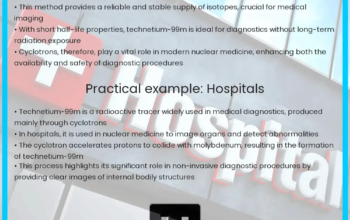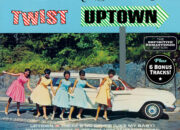The pursuit of impactful research is often inextricably linked with the acquisition of formal qualifications, such as a Ph.D. However, this notion must be scrutinized. A multitude of individuals engage in extraordinarily compelling research endeavors outside of the confines of academia. This article illuminates the pathways through which one can contribute meaningfully to the corpus of knowledge without requisite doctoral credentials, revealing the intricacies underlying both motivation and methodology.
One may first consider the pervasive sentiment surrounding the elevation of education as a proxy for expertise. It is widely accepted that advanced degrees confer significant advantages within academic circles. However, the fixation on credentials often obscures the potential of passion-driven inquiry. Passion stands as a potent catalyst for research, empowering individuals to pursue subjects they find inherently fascinating. The fervor for a topic—be it environmental science, historical analysis, or technological innovation—can propel individuals to delve deeply into uncharted territories. Such enthusiasm often leads to the serendipitous discovery of unforeseen insights that may elude those who are solely bound by the rigors of academic form.
Complementing passion is the omnipresent resource of accessibility; the digital age has democratized access to information. The emergence of online databases, open-access journals, and collaborative platforms enables aspiring researchers to seek, share, and disseminate knowledge widely. Engaging with vast amounts of literature fosters an astute awareness of prevailing discourses in one’s area of interest, allowing for the formulation of original hypotheses or projects that build upon existing knowledge. Familiarity with current research frameworks illuminates avenues for innovative inquiry while also preventing redundancy. Consequently, individuals without a Ph.D. possess the potential to make significant contributions through diligent literature review and critical analysis.
The art of networking cannot be overstated in this landscape of research independence. Connections woven within research communities provide invaluable support and guidance. Various informal collectives—ranging from social media groups to local meetups—facilitate dialogue and collaboration among like-minded individuals. Engaging with peers not only enriches one’s research but also provides a platform for feedback and constructive criticism. Such communal exchanges often yield fresh perspectives that amplify an individual’s research trajectory. Moreover, attending workshops, conferences, and symposiums is instrumental in establishing vital connections while simultaneously remaining informed on contemporary trends and methodologies.
In tandem with networking, leveraging mentorship relationships is paramount. Established researchers often welcome the opportunity to mentor passionate individuals who exhibit demonstrated commitment to a particular area of study. Such relationships can yield immeasurable benefits, including access to specialized knowledge, methodological guidance, and even potential collaborative opportunities. Mentorship fosters a unique environment in which wisdom can be exchanged, allowing aspiring researchers to pursue their inquiries with greater confidence and direction.
Another indispensable aspect of conducting impactful research without formal qualifications is the ability to engage deeply with the community. Community-based research emerges as an invaluable methodology, wherein researchers collaborate with local entities to address specific challenges and enhance collective well-being. This symbiotic relationship fosters a holistic understanding of context and relevance, ensuring that research outputs resonate with and directly benefit the population in question. In such scenarios, the depth of understanding and local engagement often supersedes the influence of formal educational accolades.
Instrumental to the success of research is the necessity of honing methodological rigor. Individuals without Ph.D. credentials must cultivate adeptness in various research methodologies—qualitative, quantitative, or mixed methods—to successfully navigate their inquiries. Gaining familiarity with research design, data collection techniques, and analytical strategies is paramount. One can access myriad resources, including online courses, workshops, and textbooks, to acquire competency in these areas. By demonstrating methodological rigor, even those outside academic frameworks can produce research findings that are credible, reliable, and impactful.
One must also embrace the art of vulnerability inherent in the research process. This involves a willingness to confront failures and recalibrate hypotheses in light of new evidence. The rejection of a hypothesis is often a more potent teacher than its affirmation. As researchers traverse their intellectual landscapes, adaptability becomes crucial. This receptiveness to critique and failure ultimately enriches the research experience and cultivates resilience—an essential quality for any aspiring researcher.
Nevertheless, the dissemination of research findings is a critical component of any research endeavor. Individuals must develop robust communication skills to effectively articulate their findings to diverse audiences. Whether through blog posts, public presentations, or participation in academic forums, the ability to convey complex information succinctly and accessibly feeds into the overall impact of the research. Public engagement ensures that knowledge extends beyond scholarly circles, influencing policy, practice, and public discourse.
Ultimately, the assertion that impactful research necessitates a Ph.D. is a misinterpretation of the broader landscape of knowledge production. The interplay of passion, resource accessibility, community engagement, networking, mentorship, methodological rigor, resilience, and effective communication unveils a rich tapestry of possibilities for individuals eager to contribute meaningfully to their fields. The journey of inquiry is not solely defined by formal qualifications but rather by the relentless pursuit of understanding—a pursuit that is accessible to anyone willing to engage with the world in a thoughtful and inquisitive manner. With this in mind, individuals are encouraged to embrace their unique paths in research, replete with the potential for substantial impact, independent of academic pedigree.












